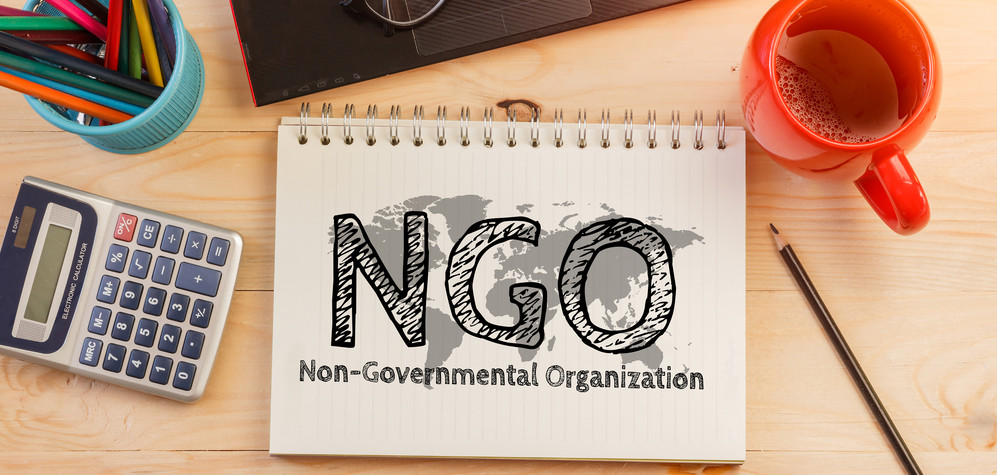
We are passionate experienced team of professional

Get Your
NGO is a non-profit organization that functions independently. In India, NGOs can be registered as a Society, Trust and section 8 companies depending on the activity an individual wishes to undertake. A Non-Profit Organization is a voluntary group or institution that works for a social cause.
In common understanding of the status, NGOs are involved in carrying out the activities at a wide range only for the benefit of the society at large. The activities performed by the NGOs include but are not limited to-Environmental, Social, Advocacy and human rights work. NGOs work to promote social or political change on a wider scale and also play a critical part in developing society, improving communities, and promoting citizen participation. There are three legal ways an NGO can be registered, which are as follows: – (1) Trust (2) Societies & (3) Section 8 Companies.
What Documents are Required for NGO Registration?
Before a registered deed is delivered to an NGO, the Below-mentioned documents are required:-
For Trust Registration
- Objective of the Trust Deed.
- Particulars of the Trustee and settlor (Self-attested copy Id and Address Proof along with the information related to occupation).
- Trust Deed on Proper Stamp Value.
- Photographs of Trustee and settlor.
- PAN Card of Trustee and settlor.
- Documentation for the Trust Registered Address. In the case of rented property (NOC from the Landlord is required).
For Societies Registration
For a society registration, below-mentioned documents are required:-
- Name of the society
- Address proof of the working space.
- Identity proof of all the 9 members
- 2 copies of the Memorandum of Association and By-laws of the society
For Section 8 Companies Registration
- Copy of Identity Proof and Address Proof (Including PAN Card).
- DIR-2(Consent of the directors) along with ID& Address proof
- Utility bill not older than 2 months
- Proof of registered office address
- No objection certificate is required if the registered office is not taken on rent.
- Affidavit regarding deposits
- INC-14 -Declaration by Professionals
- INC-15-Declaration by Promoters (INC-14 and INC-15 shall be on the stamp paper, duly notarized).
- Estimated Annual Income
- Memorandum of Association and Articles of Association
- Particulars of the promoters as well as Board Members of the proposed company
What is the Procedure for NGO Registration?
Based on type of NGO Registration (Trust, Societies and Section 8 companies), an applicant needs to follow various laws and procedure prescribed in the respective act.
NGO Registration Procedure (As a Trust)
The procedure for Trust registration involves the below-mentioned steps-
- Select an Appropriate Name
The very first while registering the Trust is to select an appropriate name for the trust. An applicant must take into consideration that the name so suggested should not come under the restricted list of names as per the provisions of the Emblems and Names Act, 1950.
- Drafting of Trust Deed
For the purpose of Trust registration, the Trust deed should be drafted. A trust deed is a document that contains all the important information related to the registration and the deed must be present before the Registrar at the time of registration.
- Selecting Settlers and Trustees of the Trust
The next step is to select the settlor and Trustees of the Trust. However, there is no specific provision with regards to the number of settlers/authors. Further, there must be a minimum of two trustees to form a Trust.
- Preparing Memorandum of Association
For Trust registration it is important to formulate the Memorandum of Association as it represents the charter of the Trust.
- Paying the Requisite Fees
The next step is to pay a requisite fee for Trust registration.
- Collection of a Copy of Trust Deed
Once an applicant submits the papers; he/she can collect a certified copy of the Trust Deed within 1 week from the registrar’s office.
- Submission of the Trust Deed in Registrar
After obtaining a certified copy of the Trust Deed, submit the same with the local registrar. The Trust deed shall be submitted along with properly attested photocopies.
- Obtain the Registration Certificate
After submitting the Trust Deed with the registrar, the registrar keeps the photocopy and returns the original registered copy of the Trust Deed to the applicant, and also issues the certificate within seven working days.
Recent Notification on NGOs- 2021
As per the recent notification, the Ministry of Home Affairs has extended the validity of registration certificates issued to Non-Profit Organizations under the Foreign Contribution (Regulation) Act, expiring between 29th September 2020 to May 31, 2021.
For NGOs receiving foreign funding it is mandatory to register under the FCRA and the decision is expected to be advantageous for various NGOs and other voluntary entities whose registrations have expired since September 29, 2020.
Further, MHA said it is necessary to administer the FCRA and section 12(6) of the act that specifies that the certificate granted shall be valid for a period of 5 years from the date of issue.
Frequently Asked Questions
What is NGO?
What are the types of NGO?
What are the minimum members required to register an NGO?
What are the primary posts involved in an NGO?
Should I register a trust or a society?
Where should I go to register my NGO?
Any Query? We are just a Message away
Clients Say
Testimonials
About our clients
Client-Centric Solutions for Your Financial Success
EzyWayTax provided excellent tax planning and financial advice to optimize a business's financial position.


